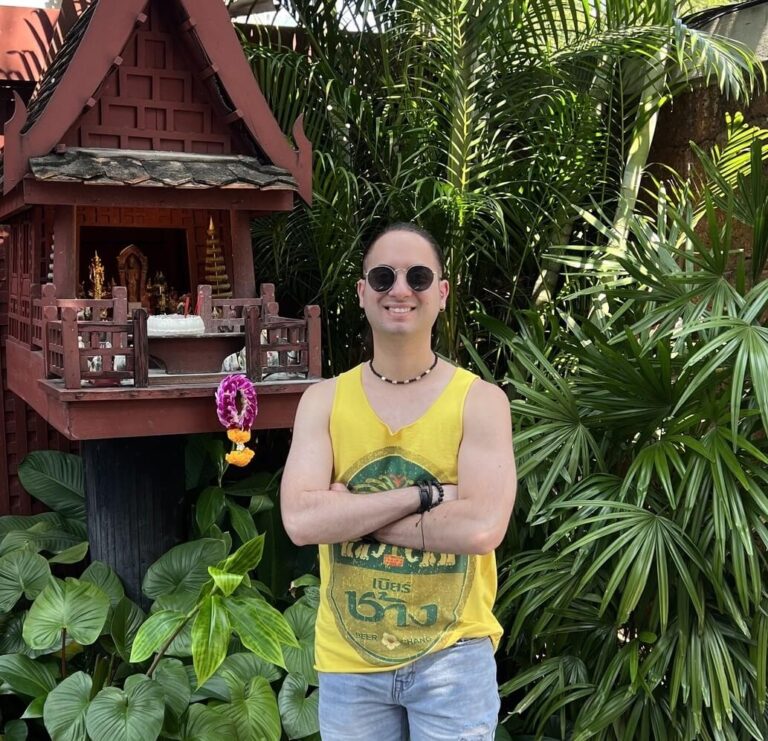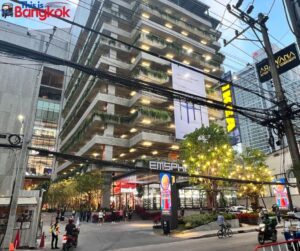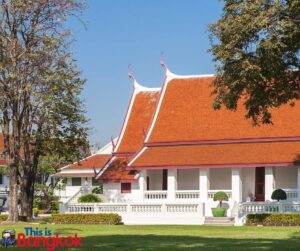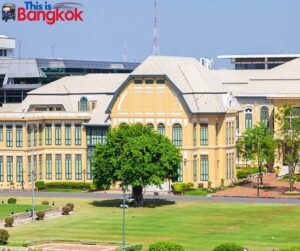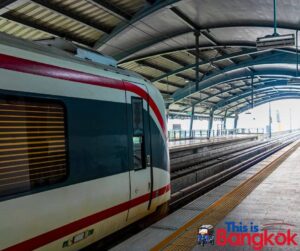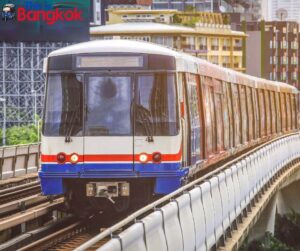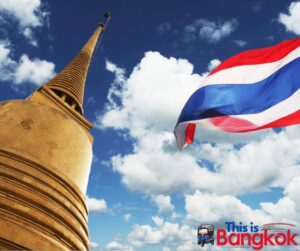Prepare your tongues and tie them in knots because we’re diving headfirst into the fascinating linguistic landscape of Bangkok!
Bangkok, the capital city of Thailand, is a vibrant and diverse metropolis with a unique language and culture.
The official language of Thailand is Thai, which is spoken by most of the population.

Here’s some information about the language and communication in Bangkok:
Thai Language:
Thai is a tonal language with five primary tones, sometimes challenging for non-native speakers to master.
The language uses its script, called “Thai script” or “Thai alphabet,” a beautiful and intricate writing system.
Learning a few basic Thai phrases can significantly enhance your experience as a tourist and help you interact with locals.
English:
English is widely spoken in tourist areas, hotels, and businesses in Bangkok, especially among younger generations and those in the service industry.
However, the level of English proficiency can vary, and outside of tourist hubs, you might encounter limited English-speaking locals.
Communication:
Thai people are generally friendly and hospitable, and they appreciate it when tourists try to learn and use basic Thai phrases.
Some common phrases that might be helpful include greetings (“Sawasdee” for “Hello”), “Khop Khun” for “Thank you,” and “Aroi” for “Delicious.”
Signage:
In major tourist areas of Bangkok, you’ll often find signs, menus, and directions in Thai and English.
This makes it easier for tourists to navigate the city and find the places they want to visit.
Cultural Sensitivity:
While English is proper, it’s essential to be culturally sensitive.
Learning about Thai customs, traditions, and appropriate behavior will go a long way in making your experience in Bangkok more enjoyable.
The Thai people appreciate when visitors respect their culture.
Local Dialects:
Bangkok is a melting pot of different regional backgrounds, so you might encounter people who speak regional dialects or languages from different parts of Thailand or neighboring countries.
However, in the urban areas of Bangkok, you’ll primarily hear the standard Thai language.
Remember that a smile and respectful attitude go a long way in any culture, and locals in Bangkok are often willing to help and interact with tourists.
Enjoy your time in this fascinating city!
What language do they speak in Bangkok?
The primary language spoken in Bangkok is Thai.
Thai is the official language of Thailand and is spoken by most of the population in the city and throughout the country.
In addition to Thai, you’ll also find that many people, especially in tourist areas and the service industry, can speak some English, making it easier for tourists to communicate and navigate the city.
How many languages are spoken in Bangkok?
Bangkok is a diverse and cosmopolitan city with many languages spoken, primarily due to its international nature and the presence of many tourists, expatriates, and communities from various countries.
Providing an exact count of how many languages are spoken in Bangkok is challenging because it can vary greatly depending on the context, population, and specific time points.
However, suppose we focus on the most commonly spoken languages in Bangkok. In that case, we can identify a few critical languages, as mentioned in the previous response (Thai, English, Chinese, other Asian languages, and tourist languages).
Due to its diverse population, dozens of languages can be spoken in various city pockets.
Still, the primary languages for communication are Thai and English, followed by other languages based on the specific communities you encounter.
Do Thai speak English well?
The level of English proficiency among Thai people can vary widely based on factors such as education, location, age, and occupation.
In general:
- Urban Areas: In major cities like Bangkok, especially in tourist areas, upscale hotels, restaurants, and businesses that cater to international visitors, you’re more likely to encounter Thai people who speak English relatively well. Younger generations, particularly those who have received education in English-medium schools, tend to have better English skills.
- Rural Areas: In rural or less touristy areas, English proficiency might be less common, and you might find fewer people who can communicate comfortably in English.
- Service Industry: Many people working in the tourism and service sectors, such as hotel staff, tour guides, and restaurant employees, have at least basic English skills to assist tourists.
- Education: Thai students often learn some level of English in school, but the quality of English education can vary. Some individuals may have excellent English skills, while others may have limited proficiency.
It’s important to note that while you’re likely to find some English speakers in Bangkok and other tourist hotspots, it’s always helpful to learn a few basic Thai phrases, show respect for the local culture, and be patient in your communication, especially when dealing with individuals who might have limited English proficiency.
A friendly attitude and attempts to communicate in the local language, even if it’s just a few words, are often appreciated by the Thai people.
Is English enough in Bangkok?
English is generally sufficient for many aspects of travel in Bangkok, especially in popular tourist areas, major hotels, restaurants, and attractions. Bangkok is a major international city and a significant tourist destination, so you’ll find that English is widely used in these contexts:
Tourist Areas:
In places like the Grand Palace, Wat Pho, shopping districts, and significant cultural sites, you’ll likely encounter staff members who can communicate effectively in English to assist tourists.
Hotels:
Hotel staff in reputable establishments usually have good English skills, and you should be able to communicate comfortably with them.
Restaurants:
Many restaurants in tourist areas have menus in English and staff who can explain dishes in English.
However, learning a few basic food-related phrases in Thai helps enhance your dining experience.
Transport:
In terms of getting around, you can often find English signage in the Bangkok Mass Transit System (BTS Skytrain) and the Mass Rapid Transit (MRT) subway, making it relatively easy to navigate the city using public transportation.
Major Attractions:
If you’re visiting significant attractions, booking tours, or asking for directions, English should be sufficient, especially when dealing with businesses that cater to tourists.
While English is beneficial, there may be situations where it’s beneficial to know a few basic Thai phrases, particularly if you venture outside of heavily touristy areas or if you want to engage more deeply with the local culture.
Learning a few greetings, thank-you phrases, and fundamental questions can make your experience more enjoyable and show respect for the local language and customs.
Is it easy to learn Thai?
Thai is a tonal language, making learning the language challenging for many people, including me.
It also has its own alphabet and writing system, so mastering it requires dedicated effort and time.
That said, it’s not impossible to learn Thai!
Numerous resources available today can help you get started with essential phrases in a relatively short time, such as online courses, apps, books, and more.
A language class is also an excellent option for those who want to learn the basics in a structured environment.
Many Thai courses available around Bangkok, in-person and online, can help anyone learn the language.
If you have the time and dedication to work, learning Thai can be a rewarding experience that will make your stay in Bangkok more enjoyable.
So why not give it a try? It might just become your favorite language! 🙂
In conclusion
Bangkok is an incredible city with so much to explore and discover. With a little effort, you can learn the basics of the language and culture to make your stay here even more special.
When traveling in Bangkok, English is generally enough for getting around and booking tours or activities.
It’s important to remember that not everyone will be proficient in English, so learning basic Thai phrases and respecting local customs will make your experience in Bangkok more enjoyable.
If you have the time and dedication, learning Thai can be a wonderful journey that will open many doors in this beautiful city. So why not give it a try? You may find yourself falling in love with the language! 😉


